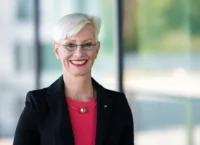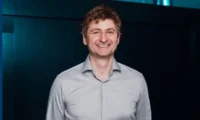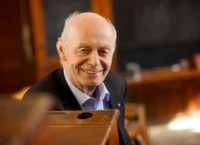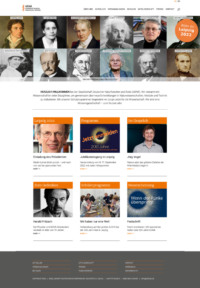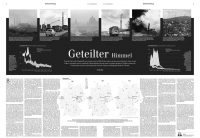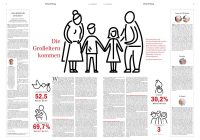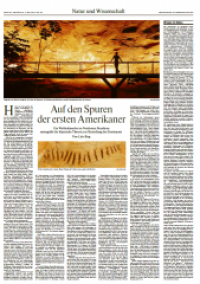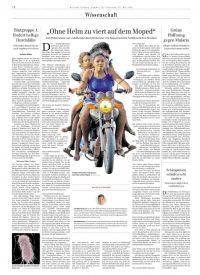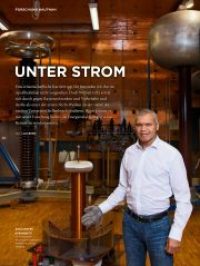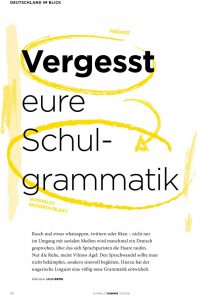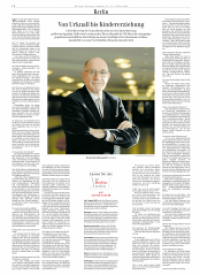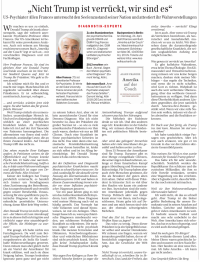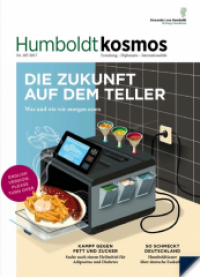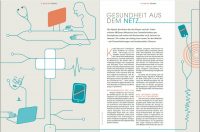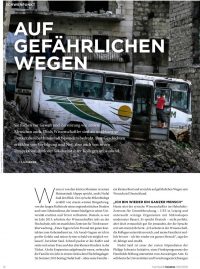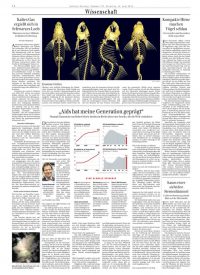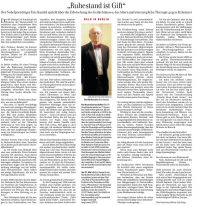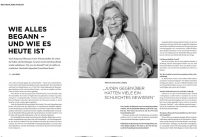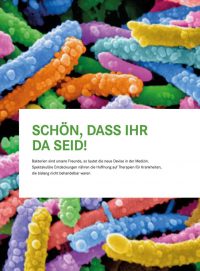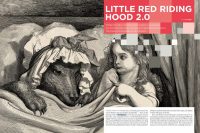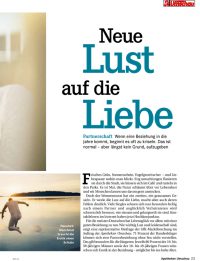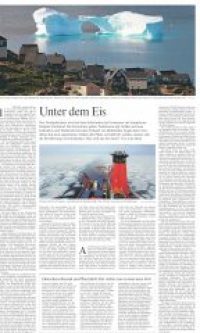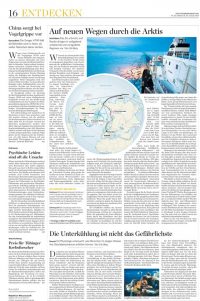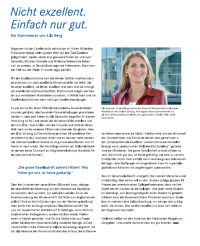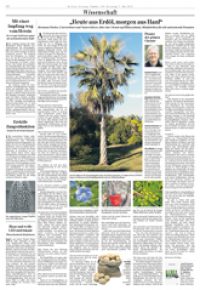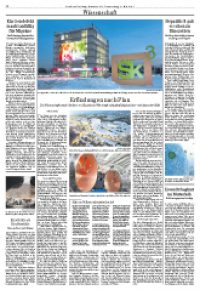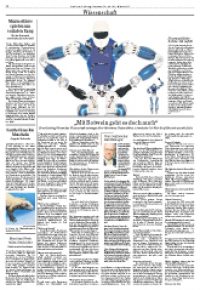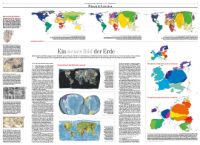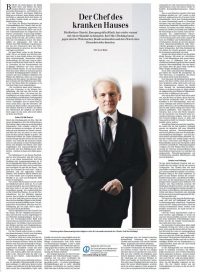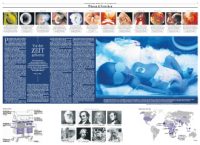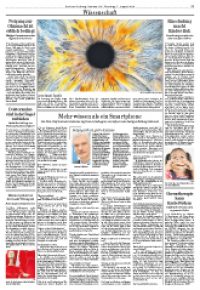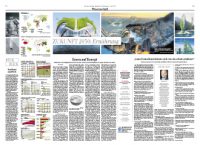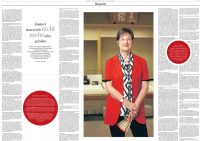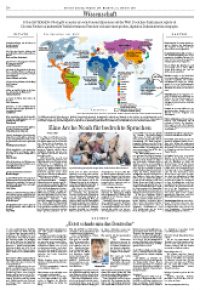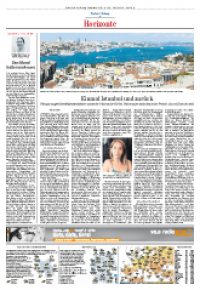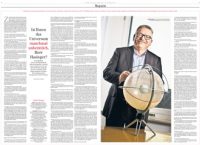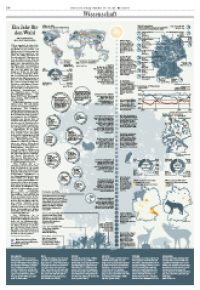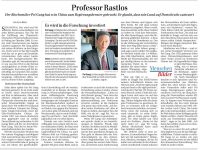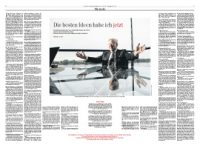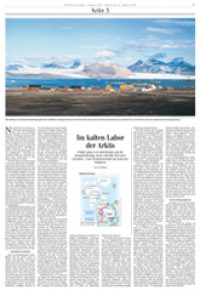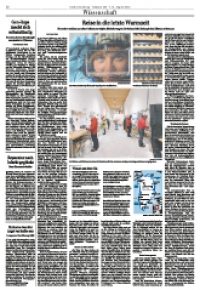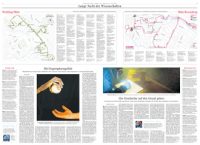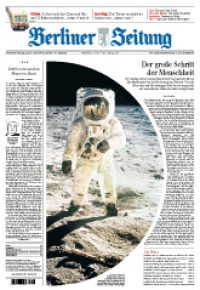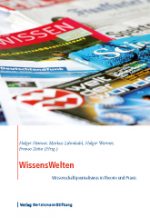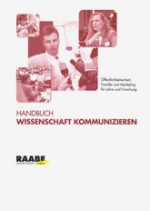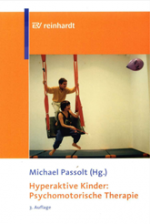Online (Selection)
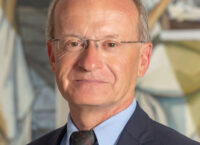
Medicine
Thomas Mettenleiter: “Nothing could scare me after that”
www.gdnae.de
BSE, bird flu, coronavirus: how the renowned virologist Thomas Mettenleiter has contributed to overcoming major epidemics, what has kept him on the Baltic Sea island of Riems for 27 years and what his audience can expect at the GDNÄ Assembly 2024.
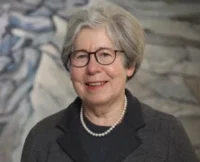
Nature Research
Michael Hecker and Bärbel Friedrich: “It’s a German-German success story”
www.gdnae.de
He researched for a long time in the GDR, she in the FRG: In their recently published book, microbiologists Michael Hecker and Bärbel Friedrich refute the theory of the colonisation of science in East Germany by the West.
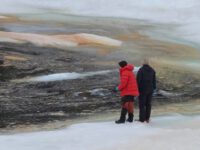
Nature Research
Liane G. Benning: “How algae are fuelling climate change”
www.gdnae.de
Liane G. Benning, biogeochemist, on earthshaking interfaces, microbes in the Arctic ice and her El Dorado of research.
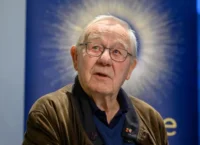
Nature Research
Armin Maiwald: Research until the doctor comes
www.gdnae.de
Armin Maiwald has been the face of Die Sendung mit der Maus for decades. For his exciting stories about science and technology, the GDNÄ awarded the presenter, author and director the Lorenz Oken Medal 2023. The award was presented on 15 November 2023 at the Science in Dialogue Forum in Bielefeld.
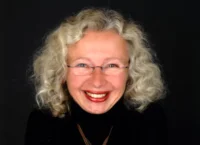
Nature Research
Angelika Brandt: Thousands of new species brought to light
www.gdnae.de
The deep-sea expedition “AleutBio” almost failed shortly before it started. But the near-drama turned into a success. Marine biologist and expedition leader Angelika Brandt describes how this was achieved.
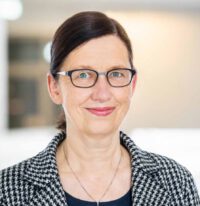
Nature Research
Barbara Albert: “An important and great task”
www.gdnae.de
Barbara Albert, chemist and rector of the University of Duisburg-Essen, on her first year in office, dealing with a cyberattack and focus topics in the Excellence Competition.
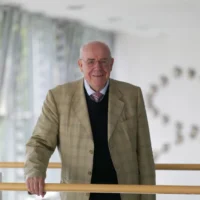
Nature Research
Ernst-Ludwig Winnacker: Cooperation with China is indispensable
www.gdnae.de
Research at the turn of the times: Why the long-standing science manager Ernst-Ludwig Winnacker advises cautious continuity and where he sees new potential.
Nature Research
Anke Kaysser-Pyzalla: A breeding ground for new ideas
www.gdnae.de
She is the head of the German Aerospace Center and a new member of the GDNÄ’s Executive Board. In this interview, engineer Anke Kaysser-Pyzalla explains what drives her and what she plans to do.
Medicine
Jörg Vogel: RNA Medicine. Once underestimated, now a beacon of hope
www.gdnae.de
In the Corona pandemic, mRNA vaccines proved their effectiveness and safety. They mark the beginning of a new era in medicine, says Würzburg infection biologist Jörg Vogel. He will describe the triumph of ribonucleic acid in therapy at the GDNÄ Annual Meeting in Leipzig – and here in an interview.
Medicine
Detlev-Ganten: There is no better life
www.gdnae.de
He is an internationally renowned cardiovascular researcher, highly decorated science manager – and former GDNÄ president: In an interview, Detlev Ganten talks about his years as a West German in an East German institute, the upswing in science and his plans for the third half of his life.
Nature Research
Website of the scientific society GDNÄ
www.gdnae.de
Concept, editing, project management. Many own texts (interviews, portraits, reports) on topics from biology, medicine, physics, chemistry and education.
Print (Selection)
Enviroment
Shared sky
Berliner Zeitung, 23./24. November 2019
About air pollution in the GDR, the true extent of which is only now becoming known
Aging
Focus on grandparents
Berliner Zeitung, 13./14. Oktober 2018
Loving and indulgent grandparents with lots of time – who wouldn’t want that? Thanks to increased life expectancy, many people’s wishes are now fulfilled and three generations in a family are normal. A booming branch of the social sciences – grandparent research – is investigating how generations live together today.
Prehistory
On the tracks of the first Americans
FAZ, 2. Mai 2018
In the dry north-east of Brazil, in the Serra da Capivara, thousands of well-preserved, enigmatic rock paintings testify to a long lost culture. Did they live here, the first Americans? Here are the results of my research trip to this remote part of the world.
Medicine
Four of them without helmets on a moped
Berliner Zeitung, 22. Mai 2018
In an interview Axel Ekkernkamp, Medical Director of the Trauma Hospital Berlin, explains why he is committed to improving emergency medicine in Brazil. Besides, one learns a lot about rescue medicine and rehabilitation in Germany.
Portrait
Energised
Humboldt Cosmos, Nr. 108/2018
A scientific career was not intended for someone like him in the apartheid state. But Wilfred Fritz managed to overcome racial barriers and reservations. Today, the electrical engineer is working on an environmentally friendly energy supply for South Africa.
Linguistics
Forget your school grammar
Kosmos, Nr. 108/2018
According to the rules of school grammar, words are considered first, then phrases and sentences. The whole text usually does not even come into view. Hungarian professor of German studies Vilmos Ágel wants to change this.
Science Communication
From the Big Bang to child-raising
Berliner Zeitung, 3./4.März 2018
The physicist Ulrich Bleyer has shaped Urania Berlin for more than two decades. In his farewell interview, he explains how he managed to win Nobel Prize winners for lectures and what is special about the Berlin science scene
Psychology
“Not Trump is crazy, we are”
Berliner Zeitung, 20. Februar 2018
Delusions, narcissism, dementia: Many mental disorders are attributed to the American President. The US psychiatrist Allen Frances is an opponent of such remote diagnoses. For him, Donald Trump is a symptom of a sick society, as he explains in an interview I did for the Berliner Zeitung.
Nutrition
The future on the plate
Kosmos, Nr. 107/2017
The world’s population is growing and everyone wants to be fed. But how can this be achieved? With artificial meat and cultured fish, high-rise farms and 3D printers for our homes? A nutritional exploration for “Kosmos”, the magazine of the Humboldt Foundation.
E-Health
Health from the net
NTC Impulse, 2016
The digital revolution has reached the body. Health data is collected and evaluated via apps, medical information comes from the Internet and telemedicine builds the bridge to the doctor. A new era of medicine has begun.
Persecuted Researchers
On dangerous paths
Cosmos, 106,2016
A microbiologist, a geographer, a linguist: pursued in their home country, they fled to Germany and found a temporary academic home here. Stories of danger, rescue and helpfulness among scientists.
Aids
Aids shaped my generation
Berliner Zeitung, 14. Juni 2016
When the fear of AIDS spread in the mid-1980s, Osamah Hamouda was still a medical student. The immunodeficiency disease should shape his professional life as a doctor and scientist. A review of a fascinating chapter of medical history.
Nobel laureate
Retirement is poison
Berliner Zeitung, 29. April 2016
Almost 90 – so what? Eric Kandel is still standing in his New York laboratory almost every day, presenting a television show and inspiring people for his research. The Nobel Prize winner comes from Vienna and had to flee the Nazis – as he remembers in an interview.
Israel
How it all started – and how it is today
Cosmos, 105/2015
After the war and the Holocaust, scientists were the first to build bridges between Israel and Germany. Eva Chava Landau came to Frankfurt in 1958 as a young lawyer and likes to remember the stimulating intellectual climate at the university. Almost sixty years later, Assaf Gal also has made positive experiences in Berlin – and yet the biochemist is drawn back to Israel.
Bacteria
Nice that you are here!
Helmholtz Perspektiven, März/April 2015
The human body consists of ten trillion cells. That alone is a gigantic amount. But there are another hundred trillion bacteria in and on the body. This interim report shows why we would not exist without these microbes, what they do for us exactly and what hopes medicine places in them.
Digital Humanities
Little Red Riding Hood 2.0
Cosmos, Nr 102/2014
Fairy tale researchers, linguists, archaeologists: More and more humanities scholars are using digital methods to dig into their mountains of information. This allows them to identify hitherto unknown interrelations and interactions. My report also explains why Germany plays a key role in this booming field of research.
Psychology
New desire for love
Apotheken Umschau, Mai 2014
What to do if the relationship has fallen asleep over time and the tingling is missing? At this point, many couples separate. According to the US psychotherapist David Schnarch this is completely wrong,: ”Because now it’s starting to get really interesting”.
Arctic research
Under the ice
Frankfurter Allgemeine Zeitung, 5. Februar 2014
Using Greenland as an example, I am describing how the Arctic Ocean is becoming a political battle zone with the disappearance of the ice cover. With my own impressions from a trip to Greenland as well as information from personal interviews at the conference “Arctic Frontiers” in Tromsø, Norway.
Arctic
In new ways through the Arctic
Stuttgarter Zeitung, 29.01.2014
The Arctic ice is melting and new, shorter sea routes between Europe, America and Asia are opening up. By the middle of the century, the transpolar route could even become navigable via the then almost ice-free North Pole.
Science policy
Not excellent. Just good.
Helmholtz Perspectives, September-October 2013
Ein Plädoyer wider die rhetorische Völlerei und verbale Blähsucht – nicht nur in der akademischen Welt.
Chemistry
Today from oil, tomorow from hemp
Berliner Zeitung, 7. Mai 2013
With dwindling supplies of crude oil, the chemical industry will lose its prime raw material. It’s time to find new strategies, says chemist Hermann Fischer, founder of Auro, producer of natural colors. In this interview, he explains how building materials, auto parts and cosmetics can be produced from plants.
Science abroad
Inventions as planned
Berliner Zeitung, 2. Mai 2013
Close to Moscow a new science city is under construction. In this city called Skolkovo 40,000 people will work and do research. The Russian government is dreaming of a kind of Silicon Valley. German companies like Siemens and SAP have been asked to help.
Science policy
It works with red wine
Berliner Zeitung, 28./29. März 2013
At most four German universities have a chance to compete internationally, says Ernst-Ludwig Winnacker, the famous science manager and former Secretary-General of the European Research Council in this interview. He calls for a better integration of Eastern countries in the EU. Why not start with an experiment?
Geography
A new image of planet Earth
Berliner Zeitung, February 16/17, 2013
One of the oldest maps of planet Earth comes from Babylon. It is 2500 years old and shows the earth as a disk floating on the oceans. Today, maps reveal the real face of the Earth in great detail. Information of another kind is displayed on the bizarre maps of a young German geographer.
Charité
The boss of the sick house
Berliner Zeitung, 29.November 2012
The Charité is Europe’s largest hospital and even storm-proof managers consider it ungovernable: too fragmented, too many staff – and repeated scandals. Karl Max Einhäupl, long-time director of the Charité, is not deterred by this.
Medicine
Born before their time
Berliner Zeitung, 3./4. November 2012
This double page article was triggered by a cluster of bacterial infections in two wards for premature babies in Berlin. I was given access to such a ward (where no excess infections had occurred) – and I experienced the world of these tiny babies, some of which did not even weigh a pound.
Education
Knowing more than a smartphone
Berliner Zeitung, 7. August 2012
In this interview, Andreas Schleicher – Deputy Director for Education and Skills and Special Advisor on Education Policy to the OECD’s Secretary-General explains the key tasks of our schools. He coordinates the Programme for International Student Assessment (PISA), a survey that gives only average results for German students.
Future 2030
Series “How will we live tomorrow?”
Berliner Zeitung and Frankfurter Rundschau, June 5-29, 2012
This series of eight double pages, conceived and written with research and interviews done in Europe, USA and Japan, appeared simultaneously in the Berliner Zeitung and the Frankfurter Rundschau in June 2013. It covered a wide range of topics: How will we live in 2030? What will we eat? What will our houses look like? How to remain healthy? How will we communicate? Learn? Work? Travel? And where will our energy come from?
Japan
Japanese people do not like everything anymore
Berliner Zeitung, 3./4. März 2012
“When I grow up, I will go to Japan,” the little girl from northern Germany said – even if her family had nothing to do with the distant country. Today Irmela Hijiya-Kirschnereit is a professor of Japanology and commutes between worlds full of strangeness and fascination.
Humanities
Noah’s Ark for endangered languages
Berliner Zeitung, 12. Oktober 2011
There are still more than 6,000 languages spoken on Earth. But the smaller our planet becomes, the more their number decreases. Researchers attempt a digital documentation to reduce these losses of culture. A feature that also touches upon the future of the German language.
Portrait
To Istanbul and back
Berliner Zeitung, 9./10. Juli 2011
Sibel Surucu grew up as a child of Turkish immigrants in Germany. She loved living in Cologne, had a good job and many friends. Then she gave up everything and moved to Istanbul. This experience has shown her, where her real home is.
Astrophysics
Are you sometimes afraid of the universe, Mr. Hasinger?
Berliner Zeitung, 19./20. Mai 2011
When he became Germany’s top fusion researcher, astrophysicist Günther Hasinger wanted to solve the problem of energy supply. Now he lets others do the job: He is returning to the stars and will start the world’s largest observatory in Hawaii.
India
A child prodigy grows up
Berliner Zeitung, 8. April 2011
First revered as a child prodigy, then mocked as a fraud: The checkered story of the young Indian mathematics professor Avatar Tulsi.
Environment
A year for the forest
Berliner Zeitung, 19./20. März 2011
Which type of forest do the Germans love most? Where does the lynx live? Who owns the forests? Find the answers on this richly illustrated page on the occasion of the International Year of Forest.
China
Professor Rastlos
Berliner Zeitung, 08. November 2010
In Mao China he was a rice farmer, later Pei Gang became professor of biochemistry, university rector and candidate for high government positions. “We have a lot of catching up to do on moral issues”, says the critical mind and convinced communist.
Social sciences
My best ideas are now
Berliner Zeitung, 18./19. September 2010
An interview with population researcher James Vaupel from Rostock about the productivity of older people and our continuously increasing life expectancy. He is a relentless optimist, Vaupel confesses. „But I always stay with the facts“
Arctic
In the cold lab of the Arctic
Berliner Zeitung, 18. August 2010
The Arctic has gained renewed interest: The sea floor appears to contain large deposits of oil and gas, and the melting of the ice opens up new routes for ships. Thus, many nations want to be there. They meet in Spitsbergen and do science. At least for the time being.
Climate research
A journey into the last interglacial period
Berliner Zeitung, 7./8. August 2010
A report from the barren northwest of Greenland, where researchers from all over the world investigate our climate. They have drilled and isolated a 2.5 km long ice core from the ice sheet. This allows them to “read” the climate of the past – and perhaps also that of the future.
Technology
Sure instinct
Berliner Zeitung, 2. Juni 2010
Man has explored the most distant places on Earth – but no artificial hand comes close to our natural ones. This article shows how much our hands are masterpieces of evolution.
Space research
A big step for mankind
Berliner Zeitung, 18./19. Juli 2009
I conceived this special edition of the Berliner Zeitung to commemorate the 40th anniversary of the first landing on the Moon. We reminded our readers of the superpowers’ race to the Moon and discussed the Moon’s mystic attraction, the Apollo program as a driver of technology, and the new targets in space travel.
Further online publications can be found on the websites of the National Academy Leopoldina , www.zukunft-mit-kindern.eu und www.altern-in-deutschland.de.
Books
“Wenn der Funke überspringt”
Publication for the 200th anniversary of the Gesellschaft Deutscher Naturforscher und Ärzte, Passage-Verlag Leipzig 2022 (Ed.: Martin Lohse).
My contribution: Concept, editing, project management and own texts„Brustkrebs: Wissen gegen Angst“ (Breast cancer: Knowledge against fear – a handbook for patients)
7th edition, Wilhelm Goldmann Verlag, Munich 2009, Original edition by Antje Kunstmann Verlag, Munich
„Wissenswelten: Wissenschaftsjournalismus in Theorie und Praxis“ (Science journalism in Theory and Practice)
edited by Holger Hettwer, Markus Lehmkuhl, Holger Wormer, Franco Zotta, Verlag Bertelsmann Stiftung, Gütersloh 2008.
My chapter: „Verstorbene Patienten sind eine Goldgrube“ (Dead Patients are a Gold Mine)
„Handbuch Wissenschaft kommunizieren“ (A Manual on Communicating Science)
edited by Andreas Archut, Christoph Fasel, Franz Miller, Eva-Maria Streier, Raabe Fachverlag für Wissenschaftsinformation, Berlin 2008.
My chapters: „Auge in Auge mit der Wissenschaft – Die Pressekonferenz aus Sicht einer Redakteurin“ (Eye to eye with Science – Press Conferences from a Science Reporter’s Point of View), „Und morgen steht es in der Zeitung – Tipps für Interviews mit Printmedien“ (Tomorrow it will be in the Papers – Handy Tips for Interviews with the Print Media)
„Frauen, die forschen“ (Women who do Research)
edited by Jeanne Rubner, Collection Rolf Heyne, München 2008.
My chapters: „Der Strom der Sprache – Angela Friederici“ (The Stream of Language – Angela Friederici) , „Die Freiheit des Denkens – Caroline Lasser“ (The Freedom of Thinking – Caroline Lasser), „Die Sonnenkönigin – Martha Lux-Steiner“ (The Sun Queen – Martha Lux-Steiner)
„Hyperactive Kinder: Psychomotorische Therapie“ (Hyperactive Children: Psychomotoric Therapy)
edited by Michael Passolt, 4th edition, Reinhardt Verlag, München 2003.
My chapter:„Gegen das Teufelchen im Kopf“ (Against the Little Devil in the Head)



